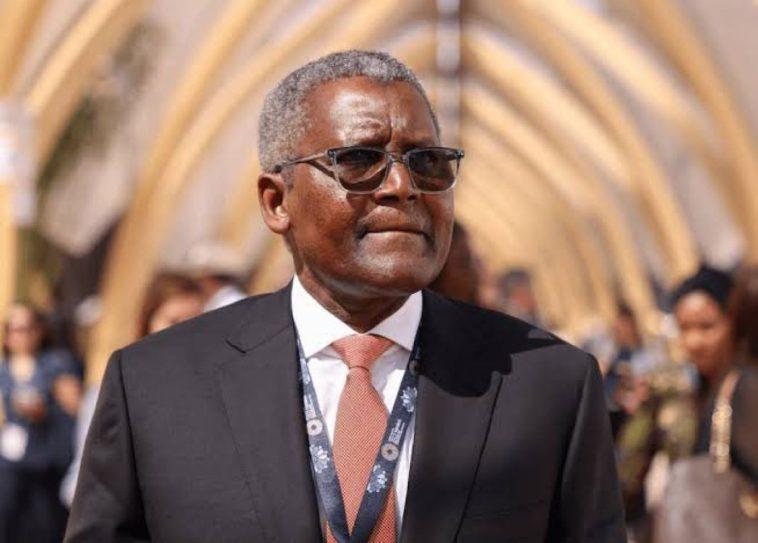Explore Our Bill Payment Services:

- Biography
- Nigeria
Aliko Dangote: Biography, Net Worth And Business Career
When you hear the name Aliko Dangote, what comes to mind? Cement? Sugar? Oil? Or perhaps the simple fact that he’s been Africa’s richest man for over a decade? Whatever image you have of him, one thing is clear — Aliko Dangote’s story is one that blends ambition, grit, and an unwavering belief in the Nigerian dream. He didn’t stumble into wealth; he built it from the ground up, brick by brick, bag of cement by bag of cement.
Let’s take a journey through his life — from his early days in Kano to becoming the face of African capitalism.
Early Life and Background
Aliko Mohammad Dangote was born on April 10, 1957, in the ancient commercial city of Kano, Northern Nigeria. Although many like to describe him as a self-made billionaire, Dangote was not born into poverty. His family was well-off, with deep roots in business and trade. His father, Mohammed Dangote, was a respected businessman, while his mother, Mariya Sanusi Dantata, hailed from the illustrious Dantata family — one of West Africa’s wealthiest merchant dynasties at the time.
Growing up in such an environment meant business was second nature to him. There’s a popular story about how young Dangote, even as a primary school boy, sold sweets to his classmates just to make a little profit. He would buy boxes of candies, sell them individually, and reinvest his earnings. That early entrepreneurial spark would later ignite into a fire that changed the African business landscape.
After his early education in Kano, Dangote went to Egypt, where he studied business at the prestigious Al-Azhar University in Cairo. The education sharpened his business acumen, but it was his natural intuition and ambition that truly set him apart.
The First Step into Business
Returning to Nigeria in the late 1970s, Dangote was ready to carve out his own path. He wasn’t content with simply joining his family’s existing ventures. In 1977, with a modest loan from his uncle — reportedly around ₦500,000 (roughly $3,000 at the time) — he started his own small trading business.
His focus was on importing and selling commodities like sugar, rice, salt, and flour. These were everyday essentials that Nigerians consumed in large quantities, and Dangote saw opportunity in meeting that demand more efficiently than his competitors.
He quickly distinguished himself by running his business differently. While many traders were satisfied with small turnovers, Dangote focused on scale and speed. He reinvested every profit, expanding his operations rapidly across the northern states and later into other regions of Nigeria.
His big break came during Nigeria’s so-called “Cement Armada” era — a period when the country faced severe shortages and delays in cement imports. Dangote secured a license to import cement and built a reliable distribution network that helped him dominate the market. This early venture not only made him wealthy but also laid the foundation for his future industrial empire.
The Birth of the Dangote Group
By the 1980s, Aliko Dangote had become one of Nigeria’s leading commodity traders. But trading wasn’t enough for him. He had a bigger dream — to transform Nigeria from a nation that imported everything into one that produced everything.
This vision gave birth to the Dangote Group, which started by importing raw materials and gradually moved into manufacturing. Through the 1990s, Dangote invested heavily in sugar refining, flour milling, salt processing, and pasta production. He understood that relying solely on imports was not sustainable, so he built factories that could produce these goods locally.
By 1992, he had formally established Dangote Cement, which would later become the crown jewel of his business empire. Cement was — and still is — a critical material in Nigeria’s rapidly growing construction industry. Dangote didn’t just want to sell cement; he wanted to make it, distribute it, and own every stage of the value chain.
Over the years, he expanded into several other sectors:
-
Dangote Sugar Refinery — one of the largest in Africa.
-
Dangote Flour Mills — which supplied bakeries and industries across the country.
-
Nascon Allied Industries — producing salt and seasonings found in millions of Nigerian kitchens.
Dangote’s strategy was simple yet powerful: focus on essential goods that Africans can’t live without, produce them locally, and dominate the market through efficiency and scale.
The Age of Mega Projects
By the early 2000s, Dangote’s name had become synonymous with industrialization in Africa. He wasn’t just a businessman anymore — he was an institution. But he wasn’t done. His next move would be his boldest yet.
In 2016, he announced plans to build the Dangote Refinery, a mega oil refinery in Lekki, Lagos, designed to produce 650,000 barrels of oil per day. To put that in perspective, it’s one of the largest single-train refineries in the world. The aim? To end Nigeria’s embarrassing dependence on imported petroleum products.
Alongside the refinery, Dangote also constructed a massive fertilizer plant, which began operations in 2022. This move wasn’t just about profits — it was about reducing Africa’s reliance on imported fertilizers and boosting local agriculture.
His cement plants expanded beyond Nigeria’s borders into over 10 African countries, from Ethiopia to Senegal, transforming Dangote Cement into a Pan-African brand.
The Net Worth of a Visionary
Now, let’s talk numbers — because that’s where Dangote truly makes headlines.
As of 2025, estimates place his net worth between $23 billion and $28 billion, making him not just Africa’s richest man, but also one of the world’s most successful industrialists. His wealth has seen fluctuations over the years, mainly due to Nigeria’s volatile currency and global market conditions, but his position at the top has remained unshaken.
So, what fuels this immense fortune?
Dangote Cement
This is the heart of his empire. Dangote owns a massive share (reportedly over 80%) of Dangote Cement, Africa’s largest cement producer. The company’s dominance and consistent profitability are key to his financial success.
Sugar, Salt, and Flour
These consumer goods form the backbone of Nigeria’s food industry. Dangote Sugar Refinery and his other consumer goods companies continue to generate billions in annual revenue.
Oil, Gas, and Fertilizer
The Dangote Refinery and Fertilizer Plant are game-changers. Once fully operational, they’re expected to add tens of billions to his valuation, as they address two of Nigeria’s biggest economic needs: fuel and food production.
Continental Expansion
Dangote’s empire isn’t confined to Nigeria. His cement plants and export operations stretch across Africa, allowing him to tap into diverse markets and currencies, cushioning him against local economic shocks.
The Challenges Along the Way
It’s tempting to think Dangote’s journey has been all smooth sailing — but it hasn’t. His story is also one of resilience in the face of massive challenges.
Currency Instability
Operating in Nigeria means constantly battling the unpredictable naira. Exchange rate fluctuations often affect the value of his holdings and his net worth in dollar terms.
Bureaucracy and Regulation
Building factories in multiple countries means dealing with layers of red tape, shifting policies, and occasional political interference. Dangote has had to master diplomacy as much as business strategy.
Infrastructure Deficiency
From poor roads to inconsistent power supply, Nigeria’s infrastructure gap has always been a hurdle. Instead of waiting for government solutions, Dangote often built his own roads, ports, and power plants to keep his business running smoothly.
The Man Behind the Empire
Beyond the boardrooms and billions, who is Aliko Dangote?
He’s known for his simplicity and discipline. Despite being worth billions, he lives a surprisingly low-profile life. He’s a devout Muslim, often described as humble and soft-spoken. Those who know him say he prefers early mornings, quiet reflection, and hard work to the spotlight.
He is also deeply family-oriented. Dangote’s upbringing in the close-knit Dantata family shaped his values of integrity, generosity, and community.
Through the Aliko Dangote Foundation (ADF), he channels a significant portion of his wealth into philanthropy. His foundation focuses on health, education, and nutrition, particularly in Nigeria and other parts of Africa. The foundation has donated millions of dollars to fight malnutrition, support disease eradication, and provide disaster relief. His contributions to the fight against polio in Nigeria have earned him recognition both locally and internationally.
Looking Ahead: Dangote in 2025 and Beyond
As of 2025, Aliko Dangote remains Africa’s richest man — a position he’s held for more than ten consecutive years. His empire continues to grow, now firmly rooted in industries that define national development: cement, energy, agriculture, and infrastructure.
His next big test lies in how well the Dangote Refinery performs. If it operates at full capacity, Nigeria could move from being a fuel importer to a fuel exporter — a historic shift that could redefine the country’s economy. The fertilizer plant is also expected to boost Africa’s agricultural productivity, feeding millions while earning foreign exchange.
But beyond the numbers and factories, Dangote’s legacy is already secure. He has proven that an African businessman can dream big, compete globally, and dominate industries that others thought only foreign investors could handle.
Conclusion
Aliko Dangote’s journey is more than just a tale of riches — it’s a blueprint for African entrepreneurship. From a young boy selling sweets in Kano to the owner of multi-billion-dollar companies spanning a continent, his story is a masterclass in vision, discipline, and reinvestment.
He didn’t just chase profit; he built industries. He didn’t just expand wealth; he expanded opportunity — for Nigeria, for Africa, and for generations of entrepreneurs who now see that it’s possible to create global empires right from the heart of Africa.
Dangote’s name today stands not just for business success, but for the power of belief — belief that Africa can produce, manufacture, and lead. And that, perhaps, is his greatest achievement.









